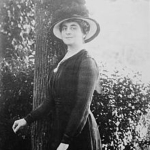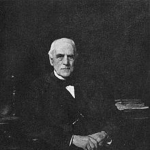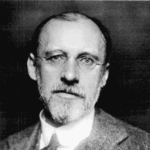Background
John Pierpont was born on September 7, 1867 in Irvington, New York, United States. Son of John Pierpont and Frances Louise (Tracy) Morgan.








banker executive philanthropist
John Pierpont was born on September 7, 1867 in Irvington, New York, United States. Son of John Pierpont and Frances Louise (Tracy) Morgan.
John graduated from St. Paul's School and later, Harvard College, in 1886.
In 1905, John's father acquired the Guaranty Trust bank as part of his efforts to consolidate banking in New York City. After his father died in 1913, the bank became Jack's base.
Morgan played a prominent part in financing World War I. Following its outbreak, he made the first loan of $12,000,000 to Russia. The firm's involvement with British and French interests fueled charges the bank was conspiring to maneuver the United States into supporting the Allies in order to rescue its loans. By 1915, when it became apparent the war was not going to end quickly, the company decided to forge formal relationships with France.
His personal friendship with Cecil Spring-Rice ensured that from 1915 until sometime after the United States entered the war, his firm was the official purchasing agent for the British government, buying cotton, steel, chemicals, and food, receiving a 1% commission on all purchases. Morgan organized a syndicate of about 2200 banks and floated a loan of $500,000,000 to the Allies. The British sold off their holdings of American securities and by late 1916 were dependent on unsecured loans for further purchases.
After World War I and the Versailles Treaty, Morgan Guaranty managed Germany's reparation payments. After the war, Morgan made several trips to Europe to investigate and report on financial conditions there. In 1919 he was for a time chairman of the international committee, composed of American, British and French bankers, for the protection of the holders of Mexican securities. In November 1919, he was made a director of the Foreign Finance Corporation, which was organized to engage in the investment of funds chiefly in foreign enterprises. By the 1920s, Morgan Guaranty had become one of the world's most important banking institutions, as a leading lender to Germany and Europe.
John was a director in numerous corporations, including the U.S. Steel Corp., the Pullman Co., the Aetna Insurance Co., and the Northern Pacific Railway Co.
John Pierpont Morgan Jr. inherited the family fortune and took over the business interests including J.P. Morgan & Co. His company became one of the world's most important banking institutions, a leading lender to Germany and Europe both during and after the war. He supported the New York Lying-In Hospital, the Red Cross, the Episcopal Church, and provided an endowment for the creation of a rare books and manuscripts collection at the Morgan Library.
Morgan was a member of the Jekyll Island Club (aka The Millionaires Club) on Jekyll Island, Georgia.
In 1890, Morgan married Jane Norton Grew (d. 1925), daughter of Boston banker and mill owner Henry Sturgis Grew.The couple raised four children.

She was an American philanthropist who provided relief efforts in aid to France during and after World War I and World War II.

He founded J. S. Morgan & Co. along with George Peabody.

He was a British diplomat who served as British Ambassador to the United States from 1912 to 1918.
